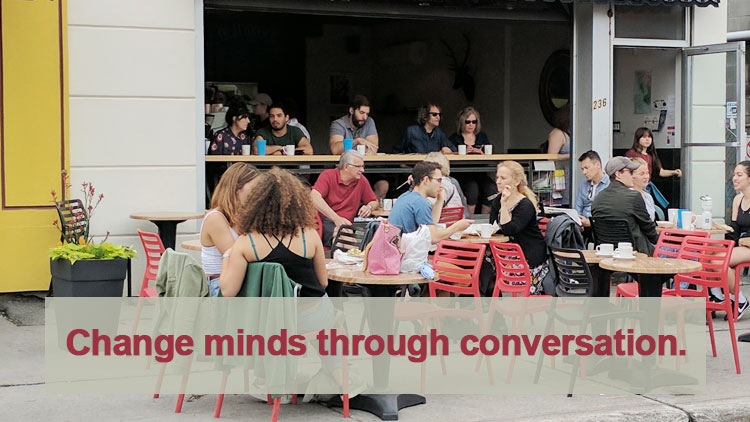
A short while back I was listening to a couple of colleagues discussing customer loyalty.
They more or less agreed that when a customer has made two or more purchases from a company, it would be reasonable to tag them as being loyal.
I don’t agree.

A short while back I was listening to a couple of colleagues discussing customer loyalty.
They more or less agreed that when a customer has made two or more purchases from a company, it would be reasonable to tag them as being loyal.
I don’t agree.
Isn’t it a little odd that we try to communicate with our audiences in so many different voices?
Many companies – and the writers who work with them – seem to struggle when it comes to finding a single, consistent voice for their websites.
For example, a company’s homepage might be written in a fairly cautious, descriptive tone.
Their About page may feel even more formal and corporate.
Meanwhile their sales pages are much louder and pushier, written in a voice that would be better suited to old-school, broadcast media like TV and radio.

I was talking with a couple of very experienced and successful copywriters recently.
The three of us were at an industry event and catching up. Talking about work, clients and so on. The usual stuff.
Then one guy says something that really grabbed my attention.
I don’t remember his exact words, but here’s the gist what he shared with us…
If you watched the video, you already know the story.
But if you’d rather read than watch, here goes…
I received an email the other day from a student of the Conversational Copywriting course.
He’d spotted not one but two typos in an email I sent out. And he wondered if, perhaps, I had done it deliberately.
His thinking, I assume, was that the typos somehow made me appear more “real”… imperfect and perhaps vulnerable.

The web is not and never has been a one-way medium where companies get to talk AT an audience.
It’s a two-way medium. Our audiences are as active online as we are.
They get to talk as well… among themselves… to us… and about us.
This has a huge impact on how companies should pitch their products and services online.
And that, in turn, has a huge impact on we, as copywriters, use our craft.
Here, in no particular order, are 7 attributes that make conversational copywriting different… and make it the perfect fit for online marketers.
At school we are taught to write properly. Our work is marked and graded. Grammar matters. And so on.
But when we talk with our friends, we don’t worry about that stuff.
We’ll talk in fragments of sentences. We’ll start sentences with the word “and”. We’ll end sentences with prepositions.
We don’t worry about the structure of our sentences or paragraphs. Not that we really speak in paragraphs.
The point being, when we communicate through writing, everything is more formal, more structured, more correct.